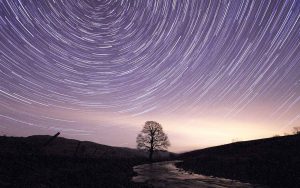 Dani Robertson, our Dark Skies Officer for North Wales spoke at our November meeting, one of only 18 such officers around the world. Dark Sky Reserve Status is given by the International Dark Sky Association to select places that have proved that the quality of their night air is outstanding and that real efforts are being made to minimise light pollution.
Dani Robertson, our Dark Skies Officer for North Wales spoke at our November meeting, one of only 18 such officers around the world. Dark Sky Reserve Status is given by the International Dark Sky Association to select places that have proved that the quality of their night air is outstanding and that real efforts are being made to minimise light pollution.
Dani explained that light pollution in the UK has increased significantly in recent years. Between 1993 and 2000, light pollution increased by 24% in the UK, and over 90% of UK population now live under a highly polluted sky and can see no or very few stars at night. As light pollution increases, the opportunities to enjoy the night sky and its stars are declining. Luckily, surveys show that we still have large areas with good quality dark skies here in Snowdonia, particularly in the more rural areas that lie away from the more populated coastal areas.
Dani said that 15% of the world’s electricity could be saved by reducing light pollution without causing issues for us. Light pollution has an adverse impact on human health and nocturnal wildlife including species of mammals, invertebrates and birds. Examples include disturbance to the migratory routes of bats (of which there are thought to be 12 species residing in Snowdonia), increased mortality in moth populations, and decreased ability to mate amongst certain bird species e.g. blackbirds. She showed examples of what can be done to decrease energy bills for both Local Authorities and individuals through the use of efficient and focused lighting.
Some dark sky events are coming up: Welsh Dark Skies week is on 19 – 27 February 2022; the Leonids meteor shower starts on 17th November; the Taurids on 12th November and the Geminids Meteor Showers on 14th December.
To discover more follow the links https://www.snowdonia.gov.wales/looking-after/dark-skies and https://www.discoveryinthedark.wales/

